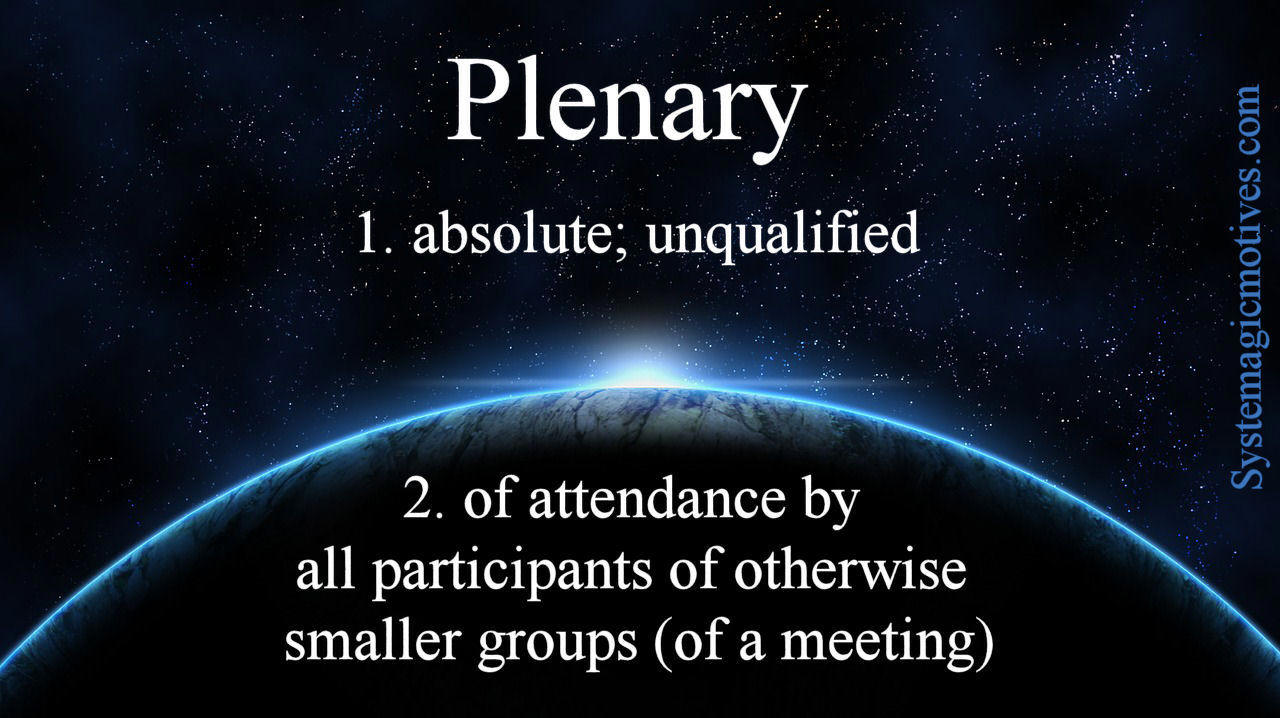

Plenary adj. 1. Absolute; unqualified
2. Of attendance by all participants of otherwise smaller groups. of a meeting
Plural Noun: Plenaries
The word plenary derives from the Latin plenus, meaning "full" or "complete," and is often used to describe something that is full, absolute, or entire. It typically refers to something that is whole or fully attended to, such as a plenary session, where all members of a group or assembly are present and engaged. This term is frequently used in formal contexts, especially in meetings, conferences, or legal settings, to indicate that all participants are involved in the proceedings, making the session complete or comprehensive. It emphasizes the idea of completeness and inclusivity, ensuring that no part is missing or excluded.
Plenary can also be used to describe authority or power that is complete and unrestricted. For example, plenary powers refer to full, absolute authority granted to someone or a governing body. The word conveys the sense of something being all-encompassing or unqualified, whether it's a meeting, a mandate, or a right. Its use suggests that the subject in question is thorough, encompassing all aspects without limitation, often with a sense of finality or totality.
Positive Nouns that Describe People
Positive
Word of the Day
The Extraordinary Words